36+ Sample New Course Proposal
-
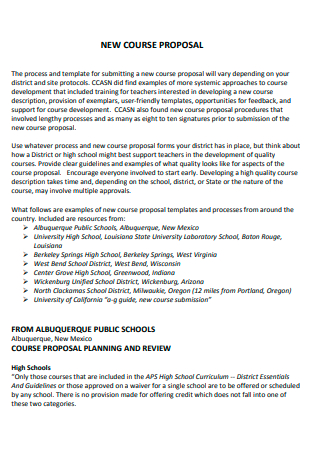
New Course Proposal Template
download now -
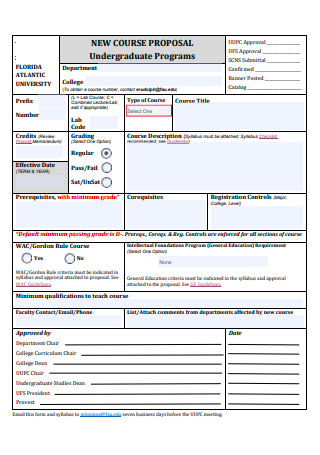
Undergraduate Programs New Course Proposal
download now -
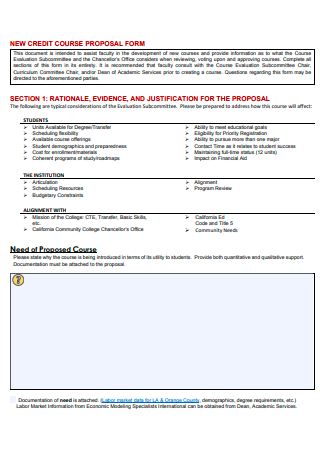
New Credit Course Proposal Form
download now -
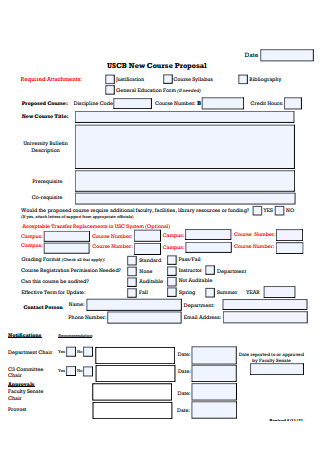
Basic New Course Proposal
download now -
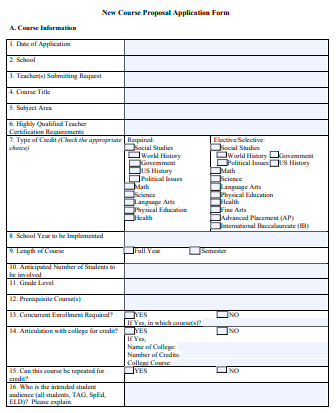
New Course Proposal Application Form
download now -
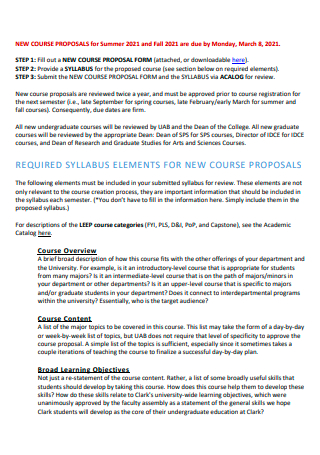
Elements For New Course Proposal
download now -
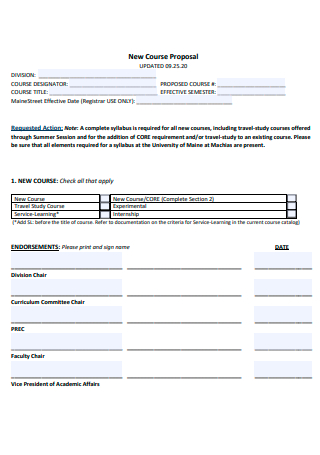
Formal New Course Proposal
download now -
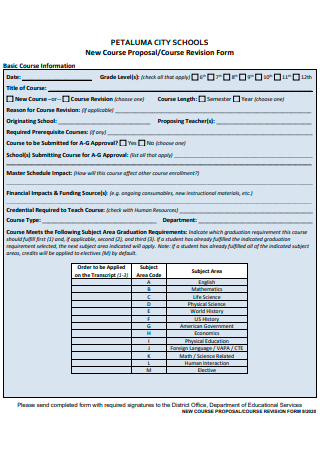
New Course Revision Proposal Form
download now -
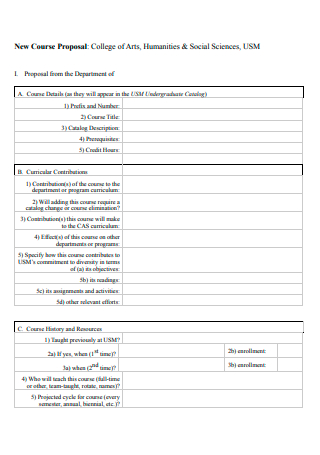
New Course Proposal Format
download now -
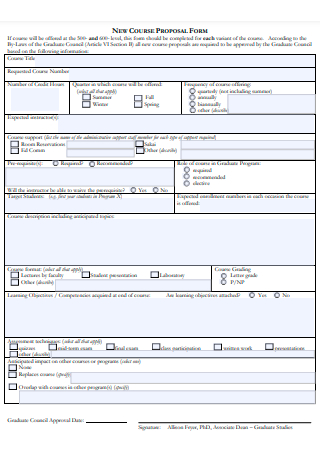
New Course Proposal Form
download now -
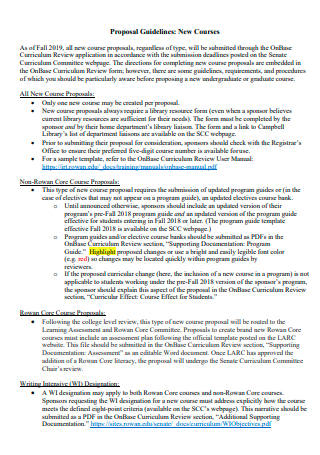
New Course Proposal in PDF
download now -
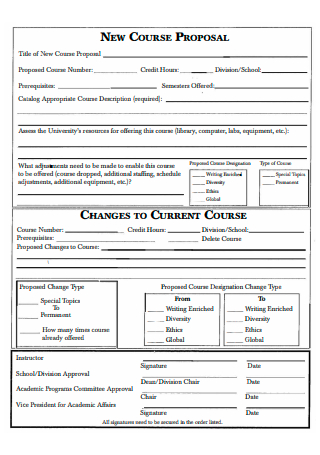
New Course Proposal Example
download now -
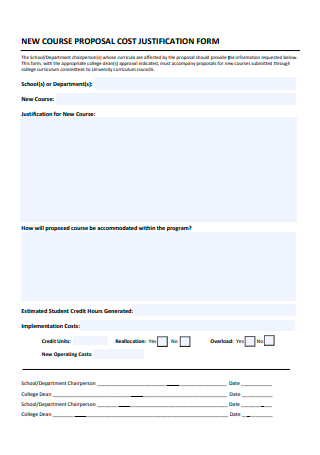
New Course Proposal Cost Justification Form Template
download now -
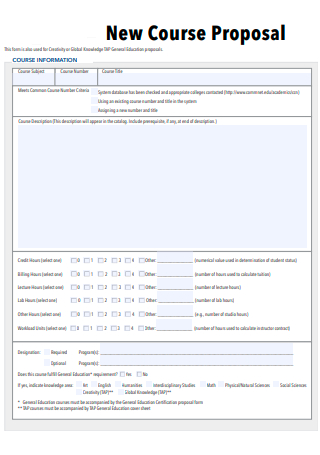
Sample New Course Proposal
download now -
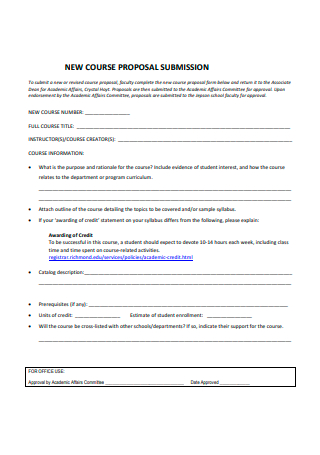
New Course Proposal Submission
download now -
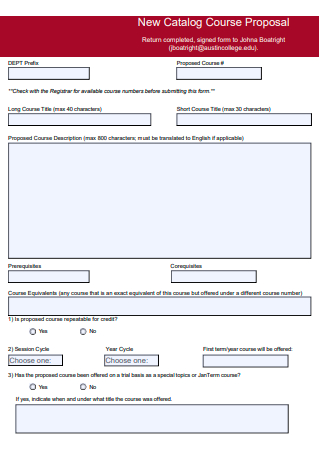
New Catalog Course Proposal
download now -
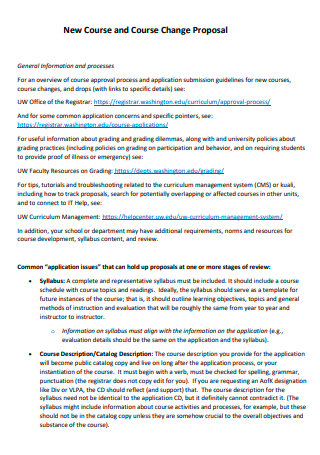
New Course and Change Proposal
download now -
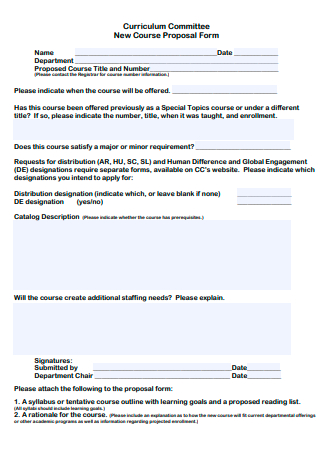
Curriculum Committee New Course Proposal
download now -
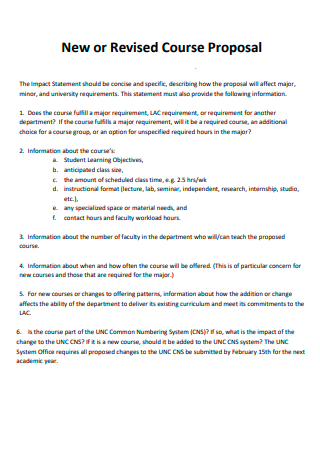
New or Revised Course Proposal
download now -
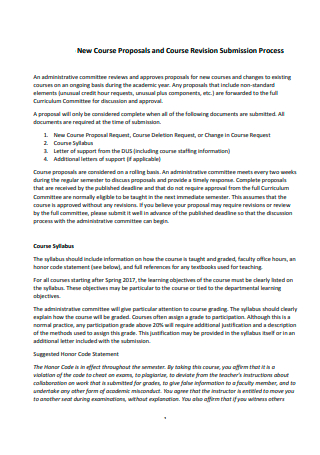
New Course Revision Submission Process Proposal
download now -
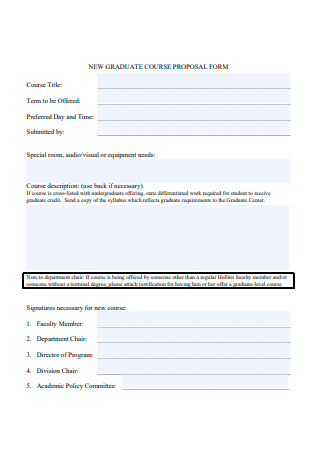
New Graduate Course Proposal Form
download now -
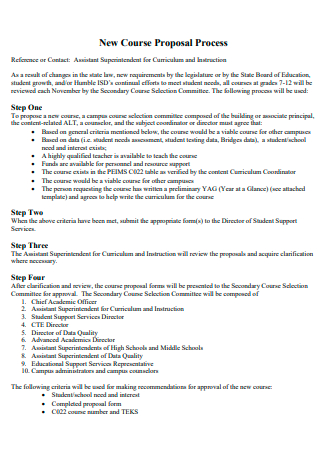
New Course Proposal Process
download now -
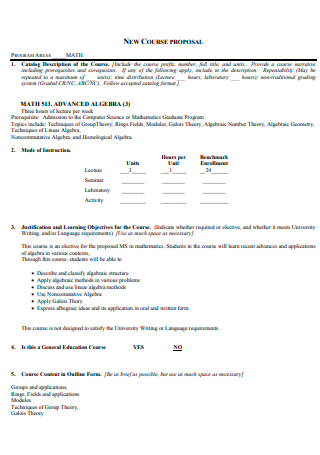
Standard New Course Proposal
download now -
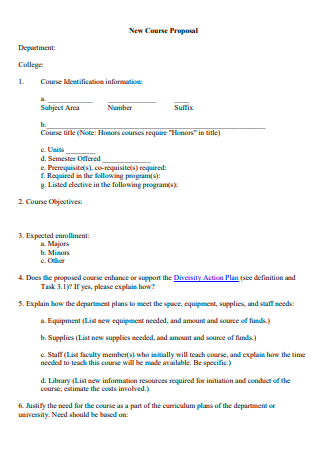
Simple New Course Proposal
download now -
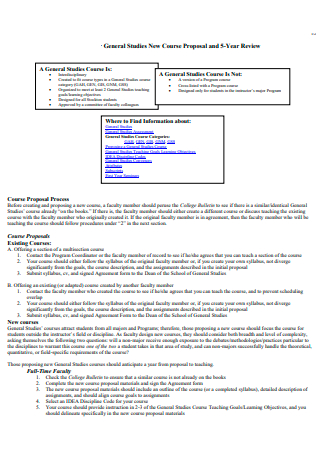
New Course Proposal and 5 Year Review
download now -
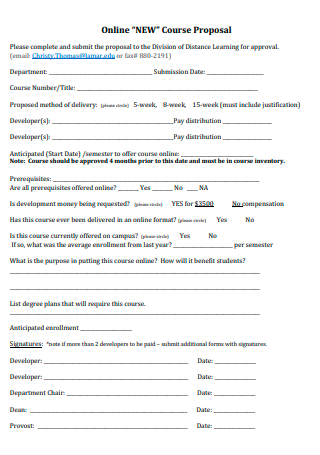
Online New Course Proposal
download now -
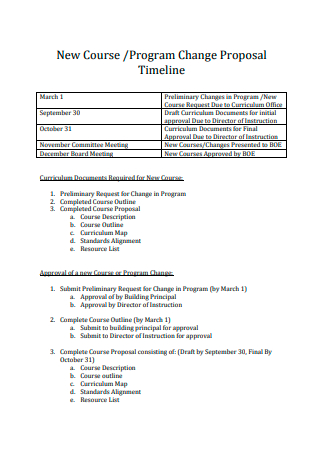
New Course Program Change Proposal Timeline
download now -
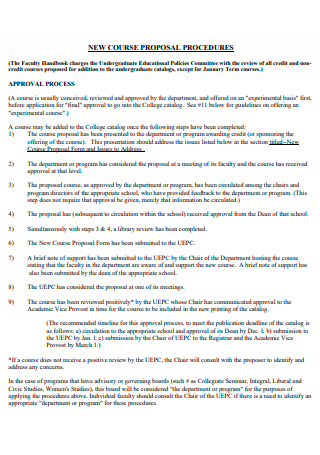
New Course Proposal Procedures
download now -
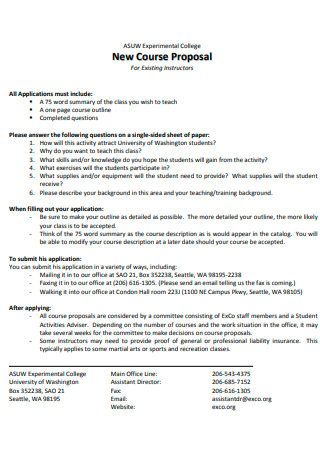
New Course Proposal For Existing Instructors
download now -
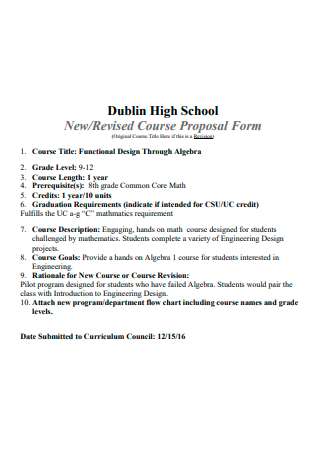
New Revised Course Proposal Form
download now -
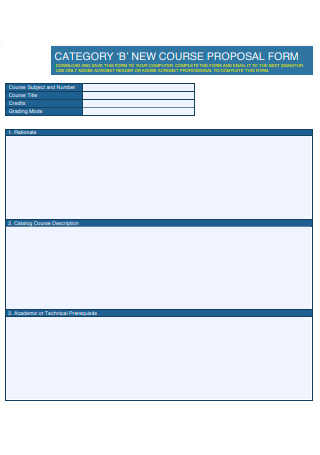
Category New Course Proposal Form
download now -
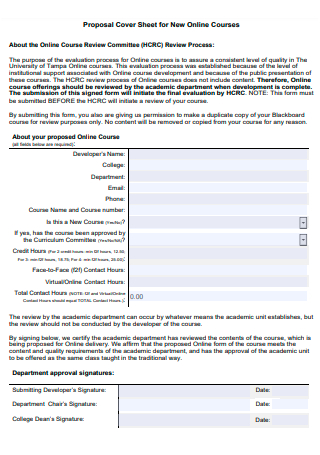
New Online Courses Proposal Cover Sheet
download now -
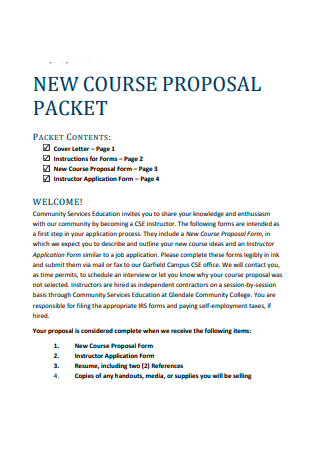
New Course Proposal Packet
download now -
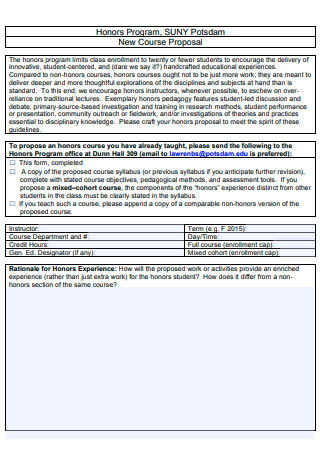
Honors Program New Course Proposal
download now -
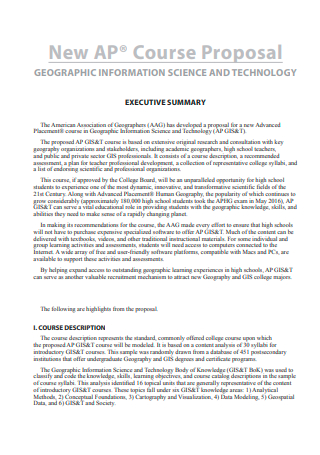
Executive Summary New Course Proposal
download now -
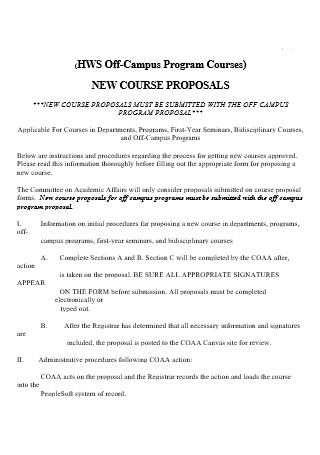
Off Campus Program New Course Proposal
download now -
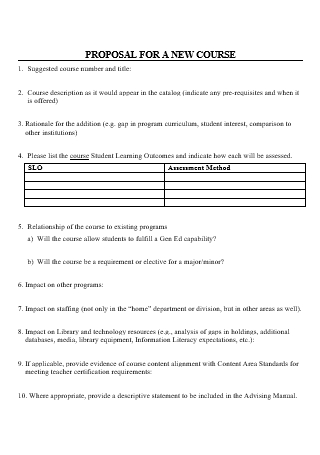
New Course Proposal in DOC
download now
FREE New Course Proposal s to Download
36+ Sample New Course Proposal
What is a New Course Proposal?
Different Types of New Course Proposal
Basic Elements of a New Course Proposal
FAQs
What are some examples of new course proposals?
What are the key elements that should be included in a new course proposal?
How long is a new course proposal?
How to build a curriculum?
How to develop a college course curriculum?
What is a New Course Proposal?
A new course proposal is a clear and enticing written document which simply identifies and explains new course goals, new course questions, course resource requirements and budget, systematic plan of new course program, course methodology and communication plan, and the benefits of the new course program. As an effective communication tool, it initiates the potential development of a new course program, showcasing a compelling outline of the new course program activities, academic projects and other elements involved in the new course. Plus, it plays a crucial role in guiding the prospective academic course program administrators and/or the overall academic course management in formulating reasonable decisions towards the development and realization of the proposed new course.
Based on a 2021 statistical report, the in-demand courses for employees that increased in consumption are Microsoft Power Automate course in Japan (889%), Emotional Intelligence course in Brazil (104%), Management Skills course in Australia (84%), Marketing Psychology course worldwide (40%), and Employee Engagement course worldwide (29%). Thus, all types of educational program developers, academic curriculum developers, head teachers, professors, corporate training program developers, employee course training program managers, and other teaching professionals in various fields and industries should be able to construct project proposal letters and documents for specific new course programs, academic certificate programs, higher education course programs, job training programs, corporate training programs, and other employee course training programs they need to execute fully well.
Different Types of New Course Proposal
Course is “an integrated series of teaching-learning experiences, whose ultimate aim is to lead the learners to a particular state of knowledge” as defined by Hutchinson and Waters. New course program developers and administrators should be knowledgeable and able to understand different types of academic courses and training courses that are worthwhile for many people. In this section, you will learn more things about the different types of new course program proposals. To assist you in this matter, read the following details:
1. Undergraduate Programs New Course Proposal
Do you need to write a new course proposal for undergraduate programs? Indicate the basic components of your new course in the undergraduate programs such as the name of department or college, the type of course, the course title, number of credits, type of grading, description of the course, prerequisites, corequisites, registration controls (major, college, level), specific general education requirements, minimum qualifications to teach course, faculty contact information like email and phone number, and others. You may list down the comments from the departments affected by the new course. After completing the basic components, your new course proposal needs to be approved and signed by the department chair, college curriculum chair, college dean, undergraduate student dean, and the president of the academic institution.
2. Online New Course Proposal
The book Moodle 3 E-Learning Course Development stated: “The phrase online learning experience connotes a more active, engaging role for students and teachers. It connotes, among other things, web pages that can be explored in any order, courses with live chats among students and teachers, forums where users can rate messages on their relevance or insight, online workshops that enable students to evaluate one another’s work, impromptu polls that let the teacher evaluate what students think of a course’s progress, and directories set aside for teachers to upload and share their files.” If you are planning to build your online courses and curriculum, you need to be creative and effective in developing the kind of learning experience that you want for your teachers or students. If you are working on a new online course, complete and submit the proposal to the Division of Distance Learning for approval by filling up the details such as the name of department, date of submission, course number and title, proposed method of delivery, names of the course developers, anticipated start date or semester to offer the online course, prerequisites, the purpose of the online course, and the benefits it will provide to the students. List down the degree plans that will be required in the online course.
3. New Course Revision Proposal Form
For a new course revision proposal form, define the basic course information which includes the date, specific grade level(s), title of course, originating school name, proposing teacher(s) name(s), required prerequisite concerns, master schedule impact, financial impacts and funding source(s), credential required to teach the course, the type of course and the name of department. Specify if it’s a new course or course revision, and determine the course length. Indicate which graduation requirement this new revised course should fulfill first, and many others.
4. Curriculum Committee New Course Proposal Form
Has this course been offered previously as a Special Topics course or under a different title? Does this course satisfy a major or minor requirement? Will the course create additional staffing needs? Answer these questions while you fill up the curriculum committee’s new course proposal form. Indicate when the course will be offered. Describe the catalog of the new course as you indicate whether the course has prerequisites.
Basic Elements of a New Course Proposal
In this section, you will learn how to construct a remarkably written and well-defined new course proposal. However, a new course proposal has different parts. Include the following elements for you to create an excellent document:
Step 1: Write a Compelling Abstract of the New Course
What are the needs (perceived by students, society, master performers, and subject-matter specialists) to which the course team wishes to address itself? What are the noticeable characteristics of the target group which the course development team wishes to help? To what extent is the course development team likely to be able to fulfill the perceived needs through the adoption of existing instructional materials? Clearly write a brief paragraph or a single page pointing out the purpose and scope of the new course in your project proposal document.
Step 2: Clarify the Student Needs or Issues Linked to the New Course Program
Interviews and questionnaires are essential tools to help your course development team determine the extent to which the students, society, subject-matter specialists, or master performers perceive the importance of particular needs, and to help specify the characteristics of the target group who needs help. Then, clarify the needs of the students or issues linked to the new course program that your team will develop.
Step 3: Describe the Essence of the New Course
Outline and cite the major components or the essence of the new course you’ll be implementing in your college or university. Showcase the key points of your new course program. Explain what you expect to attain and set the timeline of the new course. List down the names of the teaching personnel of your new course program. After that, calculate, set the budget and justify the new course budget. Also, indicate your evaluation methods and measurement tools in determining the success of your new course.
Step 4: Proofread and Revise the Overall New Course Proposal
Check your new course proposal carefully. Write all the fundamental elements in your new course proposal. If you notice that you overlook some sections that need additional points, we recommend that you proofread and revise the overall new course proposal.
Step 5: Prepare the Final New Course Proposal
After the proofreading and revision process, now is the appropriate time to prepare the final new course proposal. Add some notes and other necessary messages you want to inform the new course development committee or administration members, and/or other individuals on the concluding section of your new course proposal. Skim your new course proposal for final analysis and quality check.
FAQs
What are some examples of new course proposals?
Some examples of new new course proposals are undergraduate programs new course proposal, new credit course proposal form, basic new course proposal, new course proposal application form, elements for new course proposal, formal new course proposal, new course revision proposal form, new course proposal format, new course proposal cost justification form template, new catalog course proposal, new course and change proposal, curriculum committee new course proposal, new or revised course proposal, new course revision submission process proposal, new graduate course proposal form, new course proposal process, new course proposal and 5 year review, online new course proposal, new course program change proposal timeline, new course proposal for existing instructors, off campus program new course proposal, and more.
What are the key elements that should be included in a new course proposal?
The key elements that should be included in a new course proposal are a short rationale for the course program, a well-detailed course explanation which includes alignment with state, national, and professional standards, a proposed academic course textbook and estimated cost of the course.
How long is a new course proposal?
A new course proposal should be written one page in length as this document will be skimmed very quickly. That’s why it is crucial for new course proposal writers to do their best and everything they need to present in the proposal like the main course objectives, anticipated learning outcomes, learning materials and resources and other fundamental aspects of the new course program to the college or university management or academic course committee clearly.
How to build a curriculum?
When you build a curriculum, you need to recognize and understand the needs of your students as you review your state-mandated standards and develop a list of concepts that your students will need to discern before the end of the year. After that, look for patterns or related concepts and divide up the concepts that students will need to know into five to seven discrete units. Next, consider creating a comprehensive scope and sequence for your units as you arrange the concepts within each unit. Now, you can start developing the final assessment for each unit by evaluating your students capabilities or learning levels. When you’re done with the assessments, think about the special needs of your students, language learners, as well as gifted and talented students. Lastly, try to review your curriculum from start to finish and allow your colleague to analyze your curriculum to check if there’s anything odd or out of place.
How to develop a college course curriculum?
In order to develop a college course curriculum effectively, it is important that you always consider timing and logistics, knowing who your students are, determining the situational constraints, clarifying your learning objectives, detecting potential assessments, identifying proper instructional strategies, and planning your course content and schedule.
Abigail Adams said: “Learning is not attained by chance, it must be sought for with ardor and attended to with diligence.” Course development teams should work hand-in-hand to create new courses that will significantly drive students into their academic and professional success. Thus, writing a clear and impressive new course proposal is a worthwhile method to present the outline and fundamental content of the new course program to the course development committee or management. So, here are some of our downloadable and printable new course program proposal templates available in different kinds of formats such as formal new course proposal examples, new course revision proposal form templates, new course proposal format templates, new course proposal cost justification form templates, new catalog course proposal examples, new course and change proposal templates, curriculum committee new course proposal examples, new or revised course proposal templates, etc. Simply click the new course proposal templates in this article and start downloading now!
